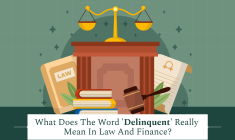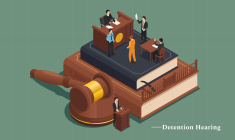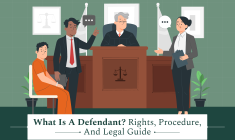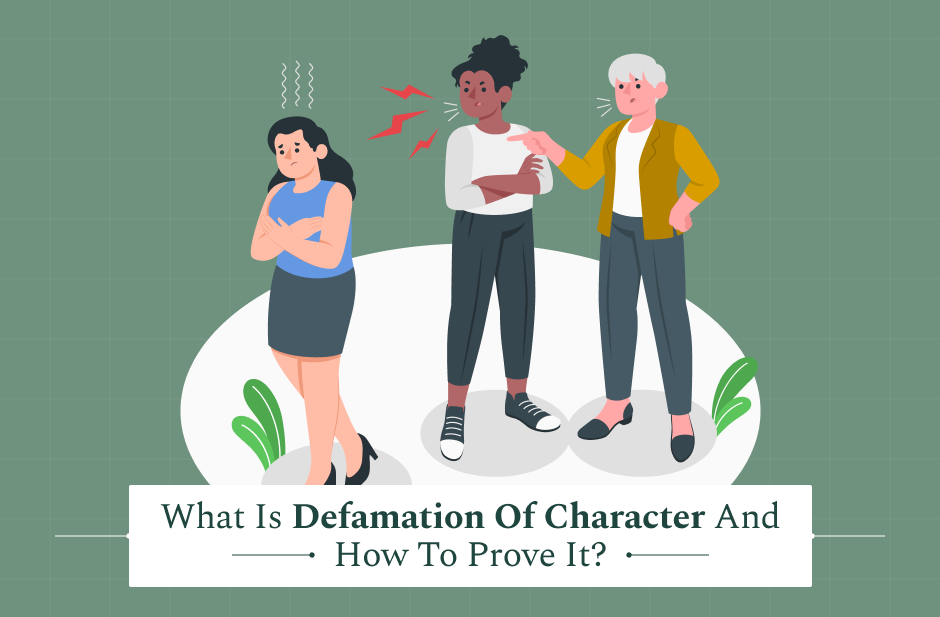To best understand Defamation of Character, imagine this. Mr. Doe is spreading some false info on you online. Reading that, clients stop coming to you and it affects your business.
So, the petty gossip no longer remains just that, does it? Well, the best way to define this scenario is the defamation of your character. It is basically a legal wrong that is causing actual damage to your reputation.
What makes us understand the complete scope of the concept of “defamation of character” is actually the digital age that we are in.
Spread of “fake news” has reached unprecedented speeds. However, taking it all into account, we will, in this article look at all legal elements of the defamation of character.
Additionally, we will talk about the difference between libel and slander. We will also talk about all the steps one can take to protect themselves through this comprehensive guide.
We will also touch on how technology complicates any potential defamation-of-character lawsuit.
What Is Defamation Of Character? The Central Legal Meaning
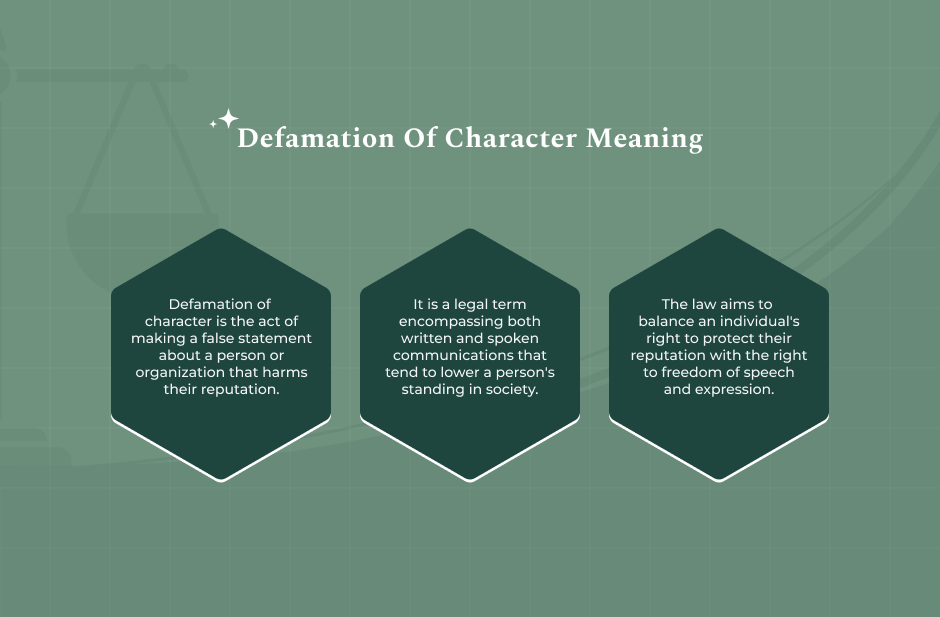
Character defamation is when somebody makes a false statement of fact about you. It has to be imparted to a third party. It also has to cause damage to your reputation.
Most legal experts point out that the purpose of defamation is to safeguard personal reputation. Reputation, in the eyes of the law, is an asset. If somebody damages your asset with their lies, they can be held liable civilly.
Libel Versus Slander: The Two Forms
The courts recognize two major types of defamation of character. The distinction depends upon the form in which the communication is made.
Libel
Any kind of defamation that is permanent in form goes under the name of libel and includes the written word, pictures, broadcasting, and information on the Internet. A false blog entry, a defamatory newspaper article, or a damaging comment on social media all constitute libel.
Slander
This is defamation of character in a transient form. So, what can these constitute?
- spoken words
- gestures
And anything in between these.
If someone told a lie about you in a public meeting, that is considered slander. Since slander is transient, it can be harder to prove at times.
Digital content, such as a video on TikTok or a post on Facebook, would more often than not be regarded as libel. These posts are accessible and permanent; hence, this permanence makes the damages due to defamation of character greater.
The Elements You Must Prove
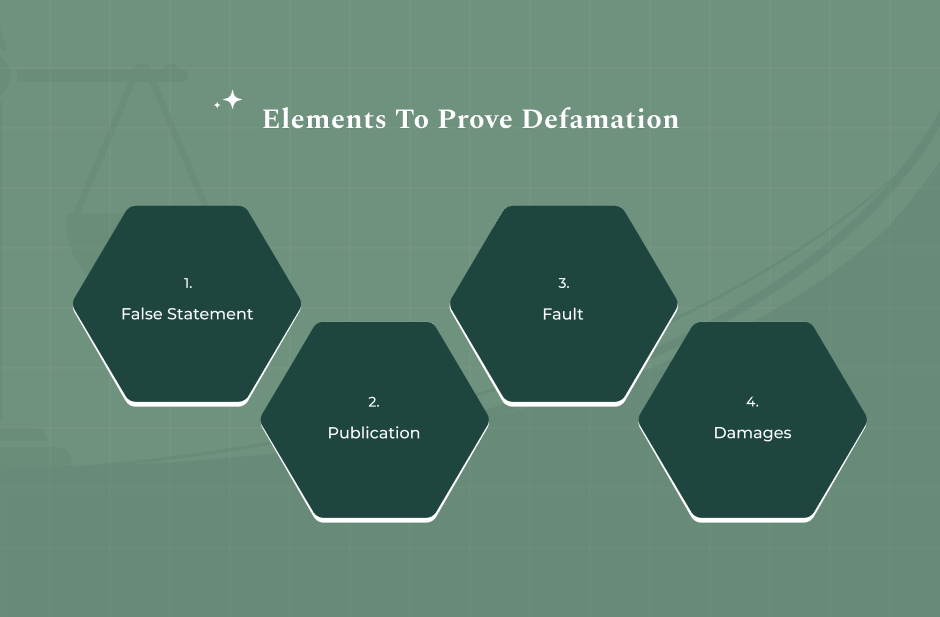
The elements necessary to prove defamation of character, and to thereby prevail in a claim, by a plaintiff-the injured party in question-are usually four in number, and these apply in most U.S. jurisdictions:
A False Statement
The speaker needs to make a statement of fact, not opinion. This statement should be false.
Publication
This means that the speaker publishes the statement to any third party. He must communicate the same to some other person than the plaintiff.
Fault
The speaker must have acted either negligently or with greater malice. The degree of fault varies depending on the status of the plaintiff.
Damages
The plaintiff’s reputation must actually have been harmed by utterance of the false statement.
The burden of proof always lies on the person stating or presenting a character defamation.
The Public Figure Standard: Fault And Free Speech
This means, essentially, that under the First Amendment, the right to free speech greatly influences how the law of the defamation of character works in the United States. Courts established a higher standard of proof to protect journalists and public debate.
The “Actual Malice” Rule
Generally speaking, the standards applied in a defamation of character lawsuit are different between private individuals and public figures.
Private Persons
A private citizen will typically only be required to prove the speaker acted with negligence. In other words, that the speaker failed to act with reasonable care in determining the truth of the statement.
Public figures need to prove a higher standard – actual malice – than other speakers.
Examples of public figures include politicians and celebrities. They must show that the speaker knew the statement was false or acted with reckless disregard for its truth. Based on New York Times Co. v. Sullivan, this rule protects open debate on public issues, according to Practical Law.
This difference in status makes it much more difficult for a public figure to succeed in a suit brought for defamation of character. They took on a greater risk to their reputation by entering the public sphere.
Defenses Necessary To A Claim
A defendant, a person accused of defamation of character, has a number of defenses. The most potent is the defense of Truth: if the statement is substantially true, the claim fails immediately.
Other key defences include:
- Opinion
- Statements of opinion.
Moreover, hyperbole or satire cannot, as a rule, be actionable.
Privilege
Some communications are legally privileged. Communications made during the course of a judicial proceeding are absolutely privileged.
Anti-SLAPP Laws
Most states have anti-SLAPP laws. These are laws that protect individuals from Strategic Lawsuits Against Public Participation, which help to dismiss frivolous cases of defamation of character at the earliest stage.
Digital Risks And Online Defamation Of Character
The internet has created an increasingly complicated context for the claims of defamation of character. Social media provides the means to post immediately and globally false statements. This raises new issues relating to jurisdiction and liability.
Social Media And User-Generated Content
A viral tweet can take somebody down in an instant-so too can a greatly damaging review. Digital defamation of character is very challenging, since often the statement has gone viral before the victim even sees it.
Section 230 of the Communications Decency Act protects online platforms. The law shields sites like Facebook or X from liability for content their users post. This usually means that one cannot sue the platform itself for defamation of character; you have to sue the individual user who posted the statement.
Emerging Threats- Deepfakes And AI
New technologies such as AI-generated deepfakes and automated misinformation further complicate the issue of defamation of character.
AI-generated videos and audio clips are almost indistinguishable from real ones. Current legal frameworks struggle to address this kind of severe harm now. Courts must act quickly in light of such effective new tools for spreading defamation of character around the globe.
Defamation Of Character Lawsuit: How It Works
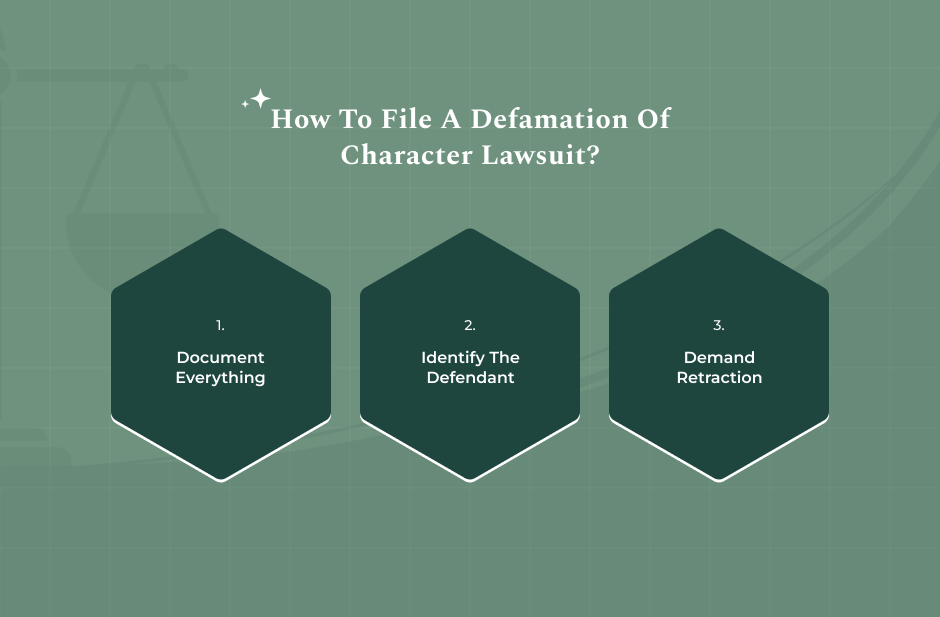
If you decide to sue for character defamation, you need to do so promptly. Each state has a statute of limitations, usually one or two years from the date of publication. Wait too long, and you lose your right to sue.
The major steps in suing for defamation of character include:
Document Everything
Save screenshots, URLs, and timestamps of where the defamatory content was posted. Never depend on the content still remaining online.
Identify The Defendant
One needs to know who has committed the defamation of character. That can be challenging if the speaker used an anonymous online account. In such cases, you may want to request the court to subpoena the platform for the user’s identity.
Demand Retraction
Your attorney’s standard course of action is the cease-and-desist letter. It is a formal demand for a retraction and an apology. This, sometimes, will prompt a settlement outside of court in your defamation of character lawsuit.
Read Also: What Is A Contingent Beneficiary? The Ultimate Financial Safety Net
Determining Damages: How Much Can I Sue For Defamation Of Character?
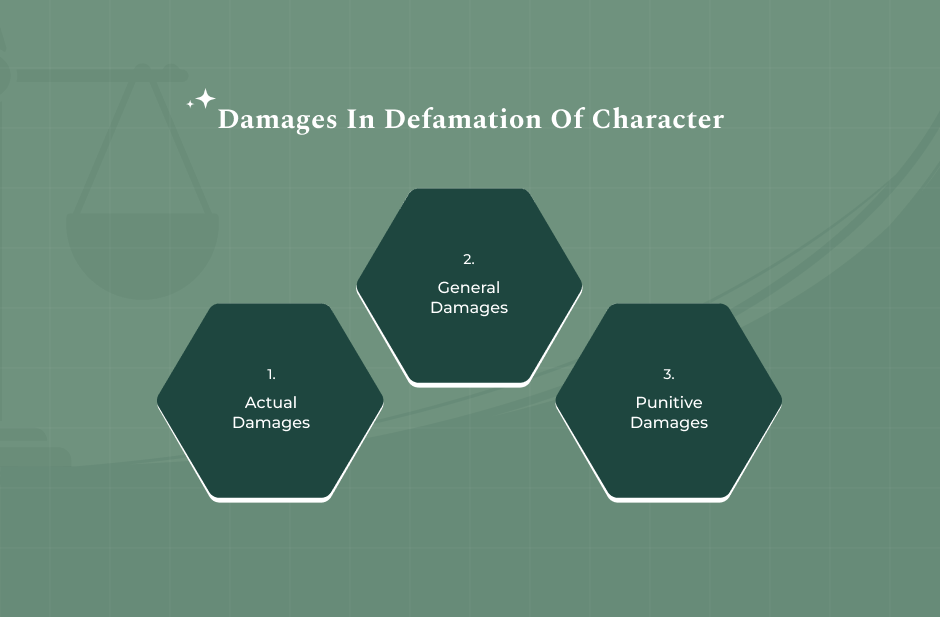
How much can I sue for defamation of character? The amount of damages one can recover depends totally upon the proof of harm. The courts award various kinds of damages to compensate for character defamation:
Actual Damages
These are damages that compensate for measurable losses. Examples include lost wages, lost business contracts, and the cost of necessary counseling.
General Damages
These include non-economic losses such as emotional distress, humiliation, and damage to reputation. This amount is usually left to the discretion of the jury.
Punitive Damages
These are awarded rarely by the courts. They punish the defendant for extremely malicious or reckless behavior. The purpose of punitive damages is to ensure that such defamation of character does not take place in the future.
The monetary amount that is awarded for defamation of character can be drastically different. A public figure with great losses may be awarded millions. A private person with little loss may be awarded a few thousand dollars.
Read Also: How To Understand The Consequential Damages Clause In Your Contract?
Frequently Asked Questions (FAQs):
Understanding defamation of character will protect your name and your livelihood. You will learn the elements of defamation of character and the tight deadlines for a lawsuit. Reputation battles will continue, at least so long as digital risks keep changing.
It begins with a formal complaint by the injured party, the plaintiff. The plaintiff must document the statement and establish the elements of defamation of character, which are publication, falsity, and resulting harm.
The defendant will raise defenses such as truth or opinion. The case will move into discovery, whereby both parties will gather their evidentiary materials, and it may conclude with a settlement or trial.
The most common reason for failure is that the plaintiff cannot prove the statement to be false. In the U.S., the burden of proof is upon the plaintiff.
Furthermore, if this is a clear opinion or hyperbole, the courts would dismiss the claim because it would not be considered a statement of fact, which is what’s required to constitute defamation of character.
Yes, you can. If you are unable to locate the person or persons responsible for the defamation of character, then a lawsuit against a “John Doe” defendant is possible through your attorney.
You would then request a court order directing the social media platform or internet provider to release the anonymous user’s real identity and contact information. This is one of the more crucial steps in suing for defamation of character in courts of law.

